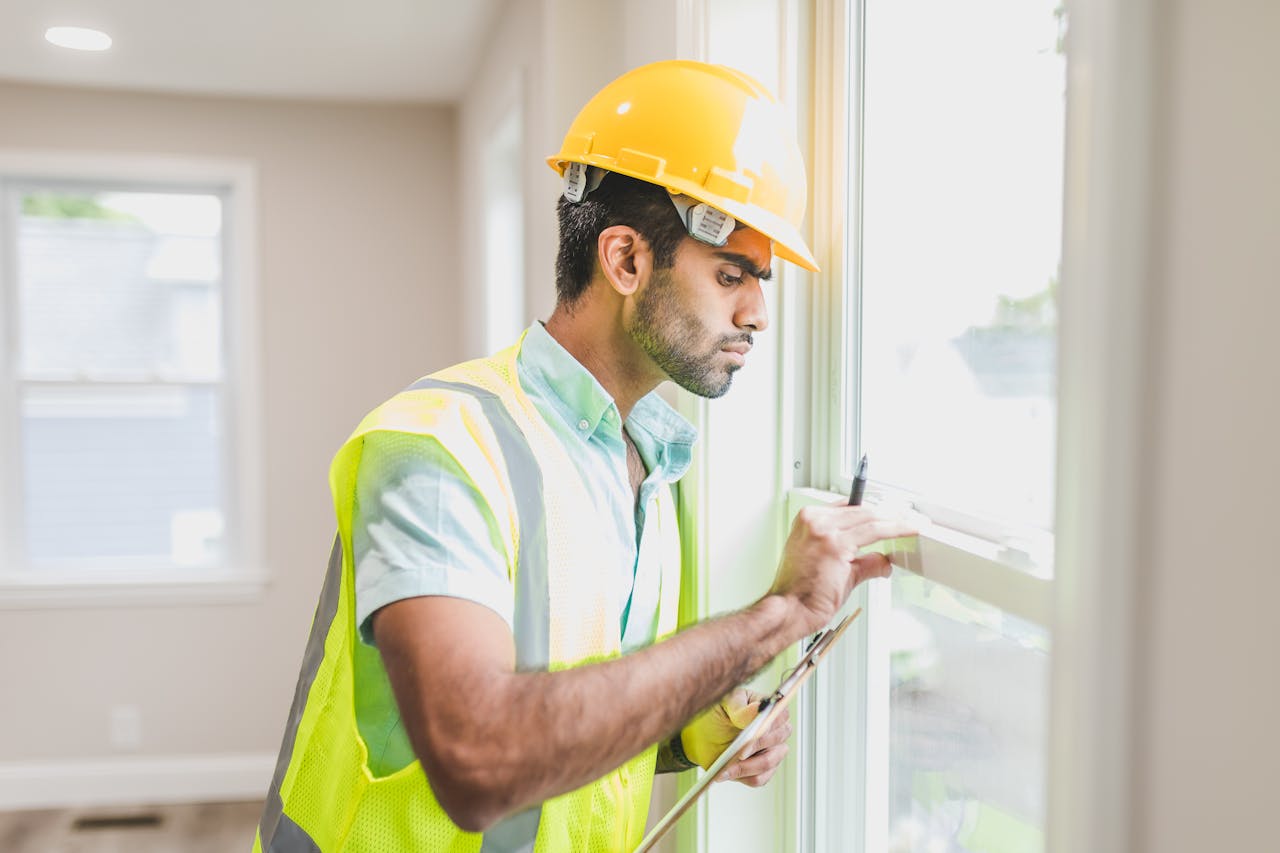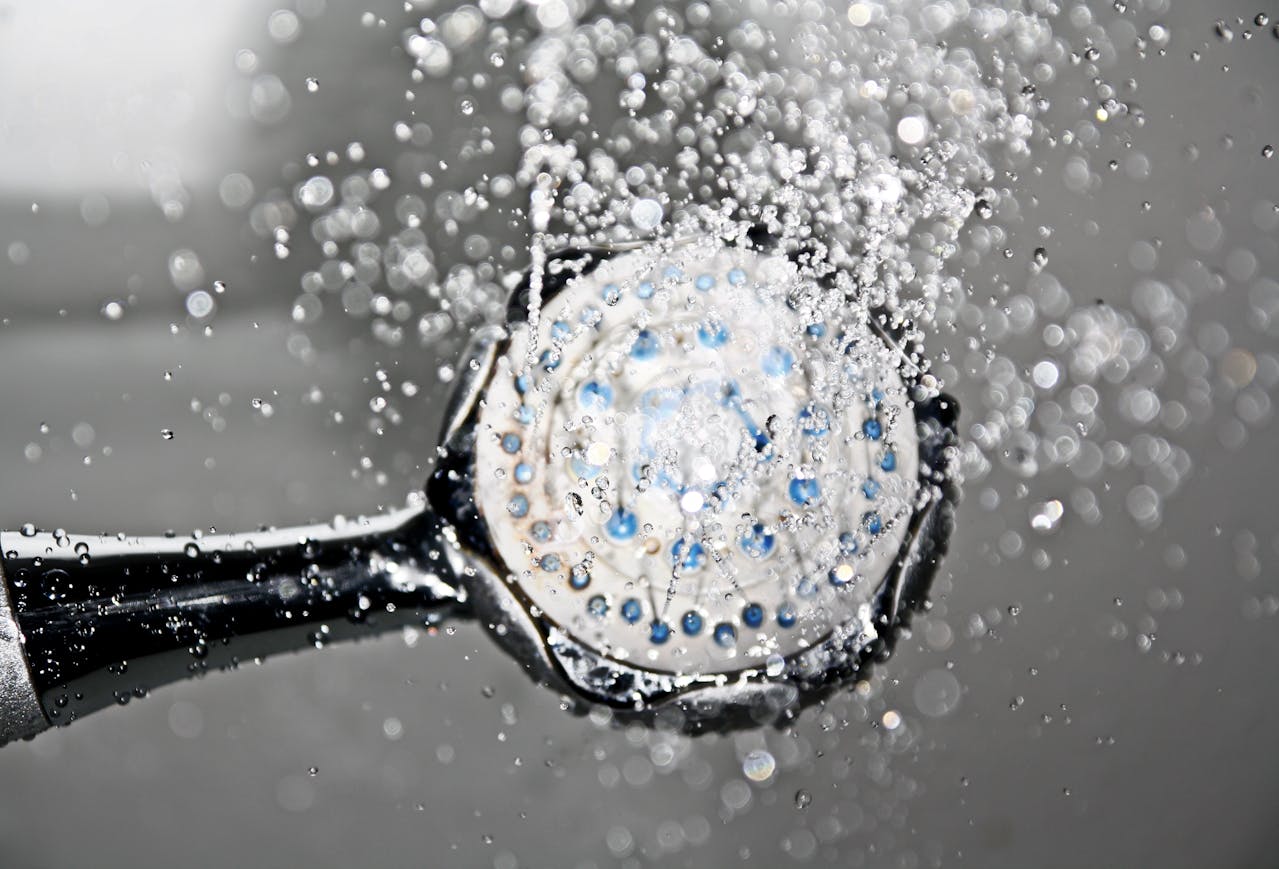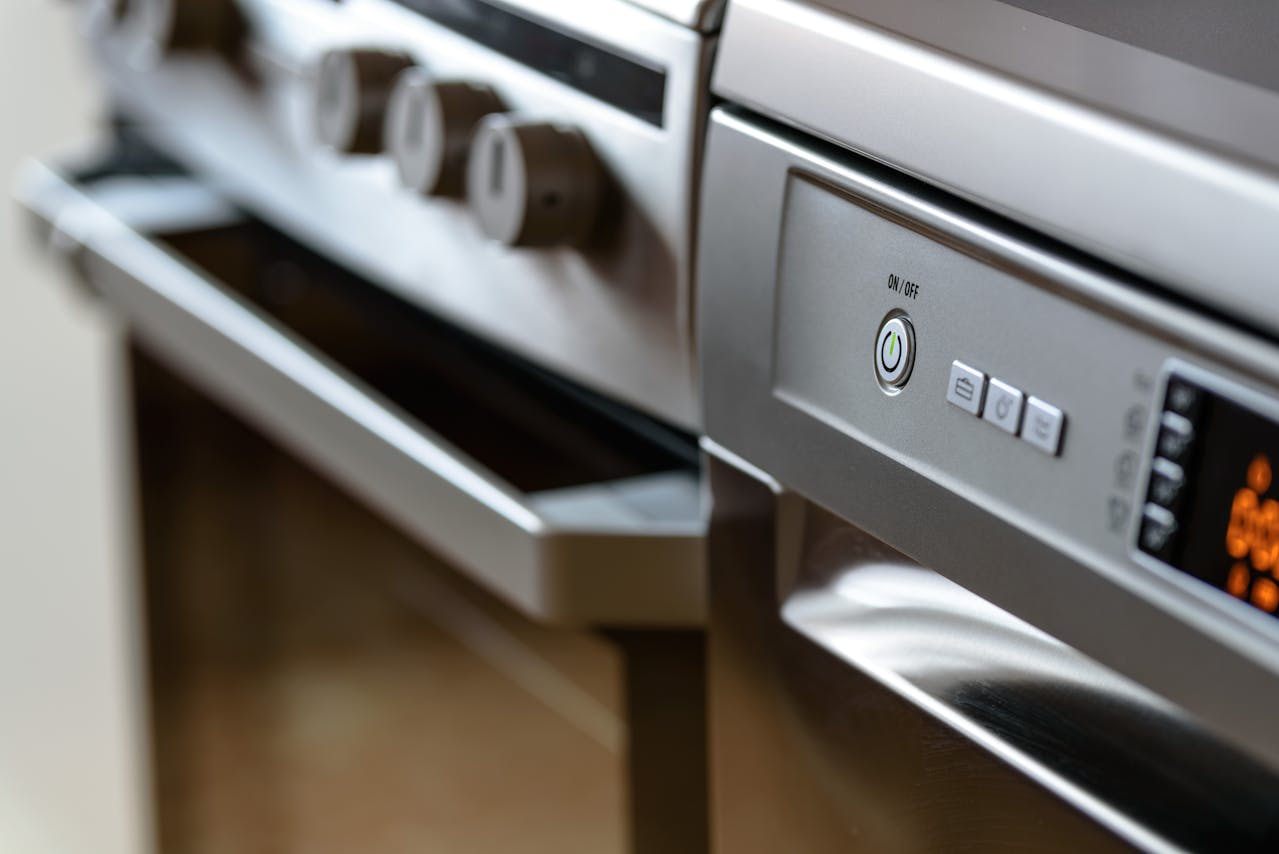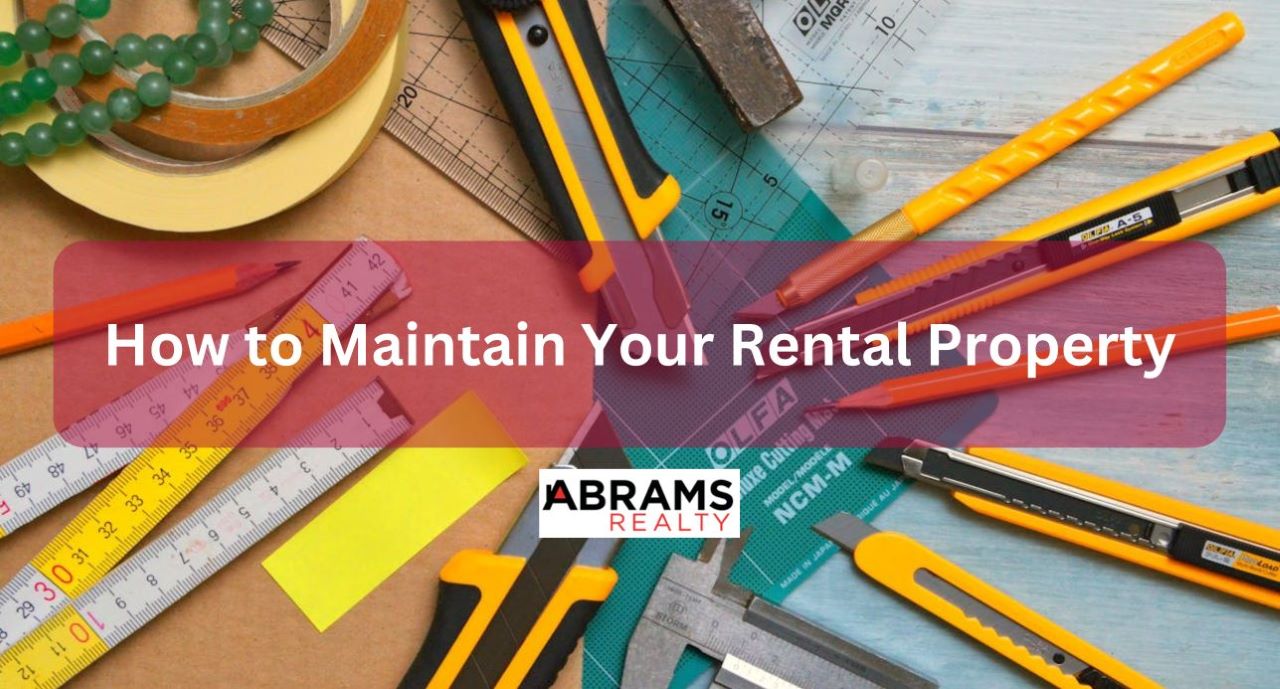Owning a rental property comes with many responsibilities, and maintenance is one of the most important aspects of property management.
Proper maintenance not only keeps tenants happy but also preserves the value of the property and prevents costly repairs down the line.
Abrams Realty has created this comprehensive guide to help landlords understand the essentials of rental property maintenance when renting out their house.
We cover landlord and tenant responsibilities, maintenance opportunities, and common mistakes to avoid, ensuring your rental property remains in excellent condition year-round.
A Landlord’s Responsibilities for Property Maintenance
Landlords are legally required to provide tenants with a safe, habitable environment. Below are the primary responsibilities landlords must fulfill to meet these standards:
1. Maintain Common Areas
Shared spaces like hallways, staircases, laundry rooms, and parking areas must be kept clean, safe, and well-lit. Regular inspections and upkeep can prevent accidents and improve tenant satisfaction.
2. Provide Proper Trash Receptacles
Ensure that tenants have access to adequate trash and recycling bins. This helps maintain cleanliness on the property and avoids pest issues.
3. Ensure Running Water
Water is a basic necessity, and landlords must ensure that all units have a consistent supply of running water, including hot water for bathing, cooking, and cleaning.
4. Perform Repairs
Timely repairs are critical to preventing minor issues from escalating. Address problems like leaky roofs, broken appliances, or plumbing issues as soon as possible.
5. Comply With Building Codes
Adhering to local building codes is essential for maintaining safety and avoiding legal trouble. Ensure that the property meets all fire, electrical, and structural requirements.

7. Ensure Vital Services Are Functional
Systems like heating, cooling, plumbing, and electricity must be in good working order. Regular maintenance and prompt repairs ensure these essential services remain reliable.
A Tenant’s Legal Responsibilities for Property Maintenance
While landlords carry most of the responsibility for maintaining rental properties, tenants have their share of obligations to ensure the property remains safe, clean, and habitable.
These legal responsibilities are critical for protecting the property’s condition and ensuring a positive living environment for all occupants.
1. Maintain Sanitary Conditions
Tenants must keep their unit clean and free from health hazards. This means regular cleaning, proper storage of food, and ensuring waste is disposed of appropriately. A clean living space also prevents odors and maintains a healthier environment for tenants and neighbors alike.
2. Ensure Safety
Safety is a critical component of tenant responsibilities. Tenants must avoid creating conditions that could endanger themselves, other residents, or the property. For example:
Blocking emergency exits is not only a safety hazard but also a violation of fire codes.
Tampering with smoke detectors, carbon monoxide detectors, or other safety devices can put everyone in the building at risk.
Landlords should provide clear instructions about safety protocols and include reminders in rental agreements.
3. Follow Housing Codes
Tenants, like landlords, must comply with local housing codes. These may include regulations about the use of utilities, waste disposal, or occupancy limits.

Misusing utilities or improperly disposing of waste can lead to fines or property damage.
Educating tenants about these codes ensures they understand their role in maintaining a safe and functional property.
4. Prevent Mold Growth
Tenants are expected to take reasonable steps to prevent mold by ventilating their unit, cleaning damp areas, and promptly reporting leaks or water damage to the landlord.
Failure to address moisture issues quickly can lead to extensive property damage and health problems for tenants.
Landlords should inform tenants about preventative measures and respond promptly to reported issues to minimize mold risks.
5. Avoid Lead Paint Risks
In older properties, surfaces may contain lead-based paint, which can pose health hazards if disturbed.
Tenants should avoid activities that could chip or scratch painted surfaces, such as hammering nails into walls or sanding old paint.
Landlords are required to disclose potential lead paint risks and provide tenants with information on safe practices.
6. Respect the Property
Tenants must treat the property with care and avoid causing unnecessary damage. Examples of respecting the property include:
Avoiding intentional damage to walls, floors, or fixtures.
Using the property for its intended purposes.
Landlords can help by setting clear expectations in the lease agreement and conducting periodic inspections to ensure the property remains in good condition.
7. Care for Fixtures and Appliances
Plumbing fixtures, heating systems, and landlord-provided appliances such as refrigerators or ovens must be used responsibly and kept clean.
Tenants are expected to operate these items as intended and report any issues or malfunctions promptly. For example:
Clogged drains resulting from improper use
Neglecting to inform landlords about a leaking appliance can lead to more significant damage

Landlords should provide guidance on the proper use and care of appliances and fixtures during move-in and in the lease agreement.
Additional Tenant Maintenance Opportunities
Tenants can assist landlords with property maintenance in ways that benefit both parties.
Seasonal Maintenance: Encourage tenants to participate in tasks like maintaining outdoor spaces, such as trimming plants or cleaning patio areas during warmer months.
Garbage Disposal: Tenants should take out their trash regularly to avoid odor and pest problems. Clearly designate areas for waste disposal to simplify this process.
Cleaning Common Areas: Tenants can contribute to keeping shared spaces tidy, such as wiping down laundry equipment or cleaning up after themselves in hallways.
Reporting Problems Immediately: Prompt reporting of maintenance issues, such as leaks or broken appliances, allows landlords to address them before they worsen.
Performing Minor Repairs: With prior agreement, tenants can handle small tasks like replacing light bulbs or tightening loose screws, which can save time and money for landlords.
Illegal Maintenance Requirements
It is important for landlords to understand what is legally permissible when delegating maintenance tasks.
Tenants cannot be forced to handle major repairs or responsibilities that fall under the landlord's legal obligations. Ensure all agreements comply with local laws and respect tenants' rights.
Bottom Line
Effective rental property maintenance is a shared effort between landlords and tenants.
Encouraging additional tenant contributions, such as keeping common areas tidy and assisting with seasonal maintenance, can further enhance the property's upkeep.
Abrams Realty is here to help landlords navigate these responsibilities with ease.
From connecting you with reliable maintenance professionals to assisting with tenant communication, we provide tailored solutions to keep your rental property in top shape.
Contact us today to learn more about our property management services and how we can help protect your investment.


